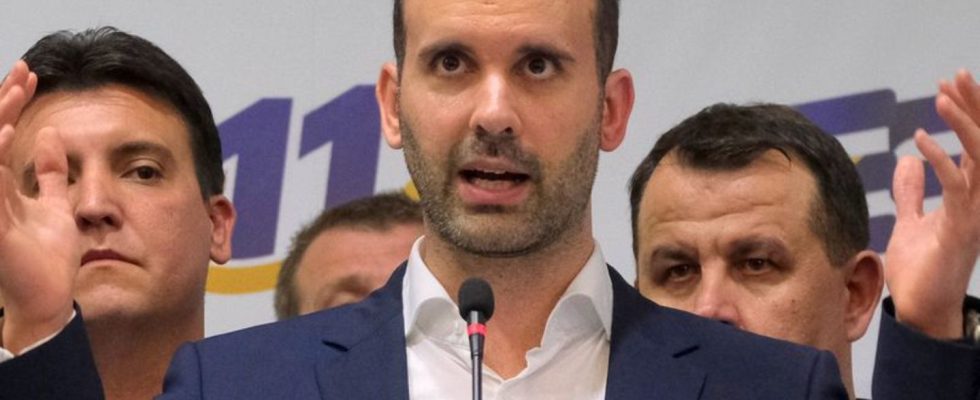Government
Montenegro: Government relies on Belgrade allies
Leads the new government in Montenegro with Belgrade allies: Milojko Spajic. photo
© Risto Bozovic/AP/dpa
Almost five months after the election, Montenegro has new leadership. Prime Minister Spajic wants to make progress with EU accession. Can this be achieved with pro-Russian and pro-Serbian forces?
After a long tug of war, the parliament in the NATO and Balkan country Montenegro elected centrist politician Milojko Spajic as the new Prime Minister.
The decisive factor in the vote were the votes of the MPs from the openly pro-Serbian and pro-Russian alliance ZBCG (formerly: DF). Although this is not formally part of Spajic’s new center-right coalition, in return for this support it will receive important positions in the state administration as well as in state-owned and state-affiliated companies.
As part of the agreement with the alliance, parliament elected its co-chair Andrija Mandic as head of parliament. Observers point out that, as parliamentary speaker, Mandic has access to secret security documents that also concern questions of cooperation within NATO. Mandic also often meets with Serbian President Aleksandas Vucic in Belgrade.
Spajic’s Europe Now (PES) party won the parliamentary election in June. But a government led by her is dependent on coalition partners. Mathematically, a government alliance with smaller pro-Serb parties and the parties of ethnic minorities – Bosniaks, Albanians and Croats – would also have been possible. Spajic had originally aimed for this.
Belgrade intervenes successfully
But interventions by the government in Belgrade and Montenegrin President Jakov Milatovic, who comes from the PES, led to Spajic deciding to involve the ZBCG alliance. The center party PES itself is not homogeneous; Milatovic represents its pro-Serbian wing.
The new government formally consists of ministers from the PES, two smaller pro-Serb parties and representatives of ethnic Albanians. In his government statement, Spajic emphasized that he wanted to push ahead with Montenegro’s accession to the EU and strengthen the judiciary in the fight against corruption and organized crime. The small Balkan country has been negotiating EU accession since 2012, but has slowed down in the necessary reform efforts in recent years.
Meanwhile, EU Commission President Ursula von der Leyen arrived in Montenegro. President Milatovic received them for a conversation. As a result, she wanted to travel on to Belgrade to meet Serbian President Vucic. The focus of her trip, which took her to North Macedonia and Kosovo on Monday, is a new EU “growth plan”, which, among other things, provides for improved access to the EU market for the countries of the Western Balkan region, but also requires the countries to make serious reform efforts.
The pro-Western Democratic Party of Socialists (DPS) was fundamentally out of the question for the PES as a coalition partner. It ruled the country for three decades under President Milo Djukanovic, who was voted out in April. Djukanovic led his country to independence in 2006 and into NATO in 2017. But his rule was also overshadowed by corruption and proximity to organized crime.
Report at portal cdm.me, Montenegrin.

